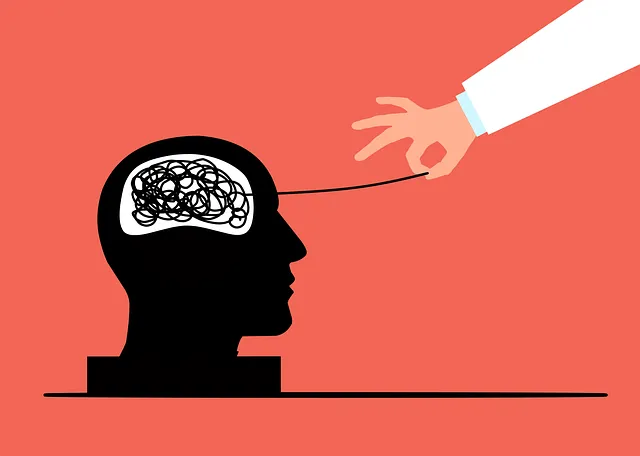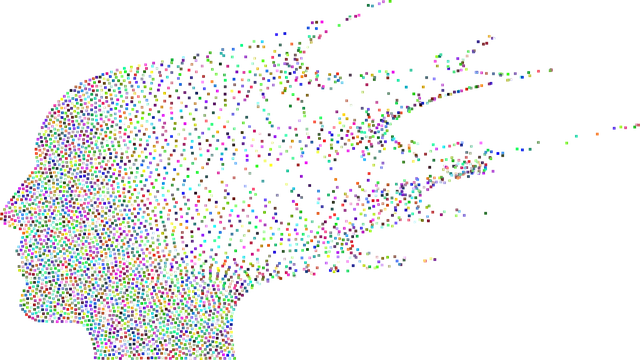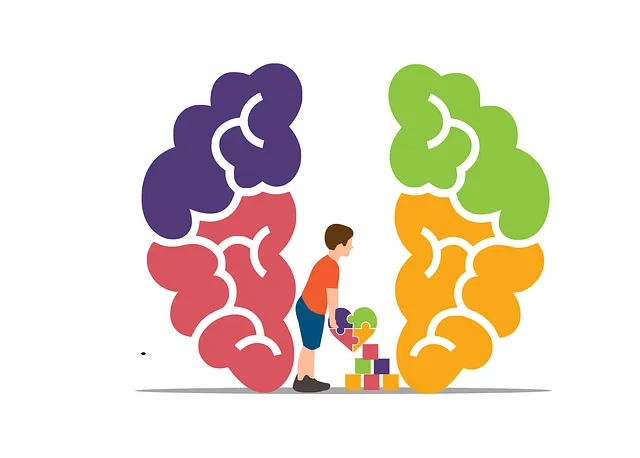The Kaiser Permanente Mental Health Access Center in Greenwood Village is a specialized hub dedicated to improving mental health services through comprehensive care, expert assessments, and personalized treatment plans. Its innovative programs, including depression prevention workshops and emotional regulation groups, cater to diverse needs while reducing stigma through education and awareness campaigns. The center leverages cultural sensitivity, risk management training, and technology integration to enhance diagnosis accuracy, empowering professionals with the latest research and skills to provide tailored care for all backgrounds.
Mental illness diagnosis accuracy is a critical aspect of patient care, and continuous improvement efforts are essential. This article explores innovative strategies employed by organizations like the Kaiser Permanente Mental Health Access Center in Greenwood Village to enhance diagnostic precision. We delve into current challenges, from subjective symptoms to cultural nuances, and highlight how technology integration and comprehensive training programs are revolutionizing assessment methods. By examining these approaches, we aim to shed light on potential solutions for healthcare professionals across various settings.
- Understanding the Kaiser Permanente Mental Health Access Center in Greenwood Village
- The Current Challenges in Mental Illness Diagnosis Accuracy
- Innovative Approaches to Enhance Diagnosis Accuracy
- Integrating Technology for Improved Assessment and Monitoring
- Training and Support: Equipping Professionals for Better Diagnoses
Understanding the Kaiser Permanente Mental Health Access Center in Greenwood Village

The Kaiser Permanente Mental Health Access Center in Greenwood Village is a beacon of hope for individuals navigating the complexities of mental health issues. This specialized center focuses on enhancing access to mental health services, aiming to improve diagnosis accuracy and reduce the stigma surrounding mental illness. By providing comprehensive care, it offers a supportive environment where patients can receive expert assessments and personalized treatment plans.
The center’s innovative approach includes various programs tailored to different mental health concerns. From depression prevention workshops to emotional regulation groups, these initiatives target specific needs, fostering a sense of community and empowerment among attendees. Through education and awareness campaigns, the access center also strives to dispel myths associated with mental illness, contributing to broader mental illness stigma reduction efforts.
The Current Challenges in Mental Illness Diagnosis Accuracy

Mental illness diagnosis accuracy has been a persistent challenge within the healthcare system, often hindered by multifaceted barriers. The complex nature of mental health conditions and their varied presentations make accurate identification and classification difficult. One notable example is the Kaiser Permanente Mental Health Access Center in Greenwood Village, which has faced these hurdles firsthand. Here, the demand for services outstrips the available resources, leading to longer wait times and potentially impacting diagnosis accuracy.
The current landscape of mental health care often struggles with misdiagnosis or delayed identification due to various factors. Stigma surrounding mental illness remains a significant hurdle, encouraging individuals to seek help later in their journey or avoid it altogether. Additionally, the vast array of symptoms and their intersectionality can make it challenging for healthcare providers to pinpoint specific disorders. Crisis Intervention Guidance and Mental Illness Stigma Reduction Efforts play pivotal roles in overcoming these challenges by educating both professionals and the public, fostering an environment where mental health issues are openly discussed and properly addressed with enhanced confidence among all stakeholders.
Innovative Approaches to Enhance Diagnosis Accuracy

Innovative approaches are transforming mental illness diagnosis accuracy at centers like the Kaiser Permanente mental health access center in Greenwood Village. One such method emphasizes Cultural Sensitivity in Mental Healthcare Practice. By understanding and incorporating diverse cultural perspectives, healthcare professionals can better interpret symptoms and behaviors, leading to more precise diagnoses. This approach ensures that individuals from various backgrounds receive culturally competent care tailored to their unique needs.
Additionally, integrating Risk Management Planning for Mental Health Professionals into diagnostic practices is vital. This involves training providers to identify and mitigate potential risks during assessment, such as bias or miscommunication. By fostering a culture of continuous learning and self-reflection, mental health professionals can enhance their skills in depression prevention and other common mental health disorders, ultimately improving diagnosis accuracy and patient outcomes.
Integrating Technology for Improved Assessment and Monitoring

Integrating technology has emerged as a powerful tool to enhance mental health assessment and monitoring at centers like the Kaiser Permanente Mental Health Access Center in Greenwood Village. With advancements in digital tools, professionals can now utilize online platforms, mobile applications, and wearable devices to gather comprehensive data about patients’ moods, behaviors, and overall well-being. These technologies enable continuous tracking of symptoms, providing valuable insights that aid in more accurate diagnoses.
The Kaiser Permanente Mental Health Access Center has recognized the potential of these innovations and has been incorporating digital solutions into its services. For instance, they offer a Mental Wellness Podcast Series Production to educate patients on various mental health topics, while also promoting their Stress Management Workshops Organization as a way to empower individuals with coping strategies. Furthermore, the center is developing Mental Wellness Coaching Programs, leveraging technology to connect coaches with clients for regular sessions, ensuring consistent support and monitoring. These efforts demonstrate a commitment to improving diagnosis accuracy by utilizing modern tools alongside traditional assessment methods.
Training and Support: Equipping Professionals for Better Diagnoses

Mental health professionals play a pivotal role in accurately diagnosing individuals with mental illness. To enhance this process, organizations like Kaiser Permanente’s Mental Health Access Center in Greenwood Village offer comprehensive training and support initiatives. These programs aim to equip practitioners with the latest research, evidence-based practices, and enhanced communication skills, ensuring they can make informed diagnoses.
The centers often conduct workshops focused on self-esteem improvement and stress management techniques, empowering professionals to recognize subtler symptoms and promote positive thinking. By fostering an environment of continuous learning, these efforts contribute to improving diagnosis accuracy and ultimately enhancing patient care and outcomes.
The pursuit of enhancing mental illness diagnosis accuracy is an ongoing journey, especially in complex cases. By examining the practices at the Kaiser Permanente Mental Health Access Center in Greenwood Village and leveraging innovative approaches, technology, and comprehensive training, significant strides can be made. Integrating these strategies ensures that healthcare professionals are better equipped to provide precise diagnoses, ultimately improving patient outcomes and care management. This article has highlighted the current challenges and proposed solutions, offering a roadmap for continued improvement in mental health diagnosis accuracy.






